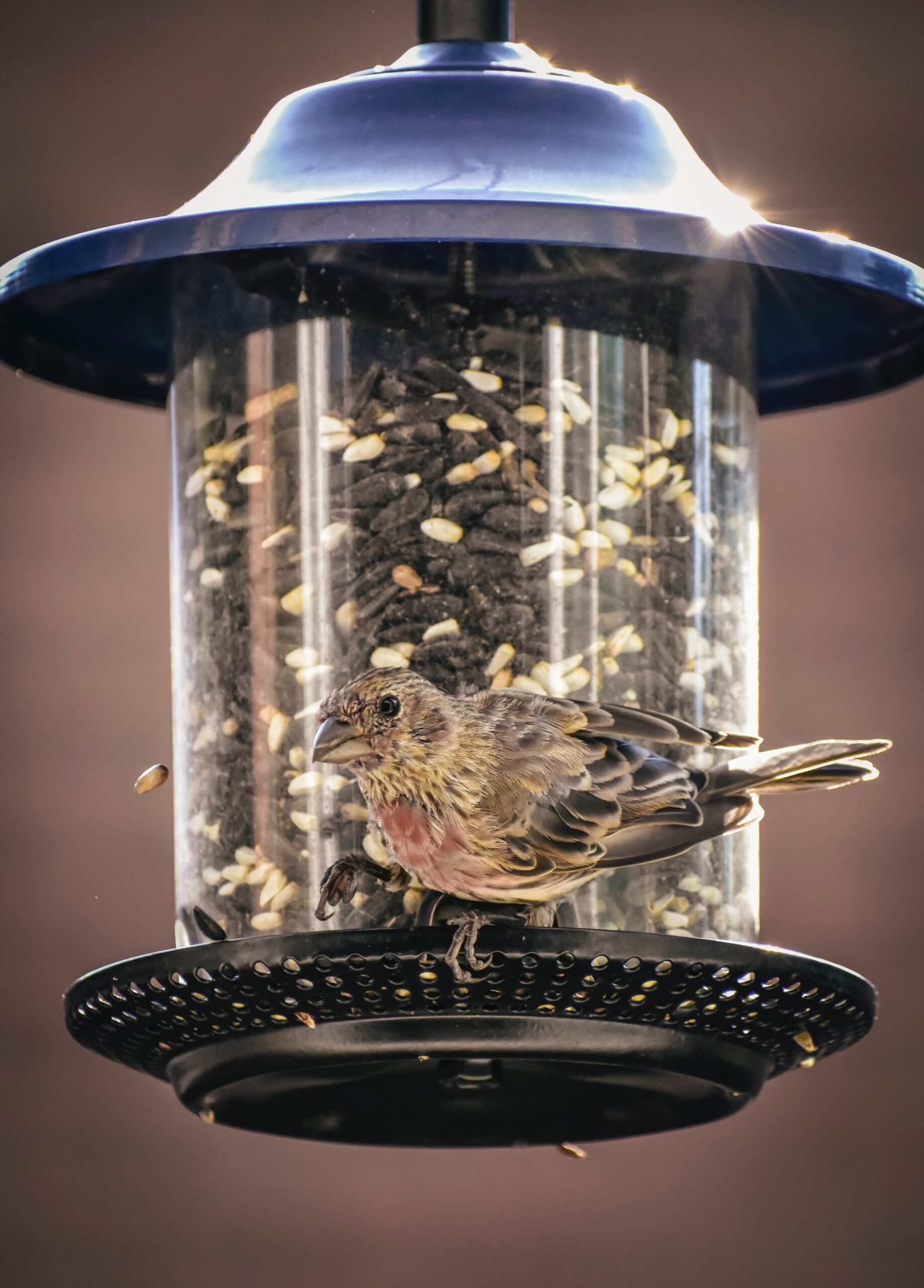birds are a delightful sight to see and are often welcomed by bird enthusiasts. Feeding garden birds is a popular pastime for many, but it’s important to know when to feed them to ensure their survival and well-being.
During the winter months, food can be scarce for garden birds. This is when they need our help the most. It’s recommended to start feeding them in late autumn when the temperature starts to drop. This will give them enough time to find your garden and become familiar with the feeding stations before the harsh winter sets in.
However, it’s not just the winter months when garden birds need our help. Feeding them all year round can provide them with a reliable food source, especially during times when natural food is scarce. But it’s important to remember that feeding them during the breeding season can have negative consequences. In the next section, we will explore the best times to feed garden birds in more detail.
Understanding Garden Birds’ Dietary Needs
Garden birds require a varied diet to stay healthy and active. A well-balanced diet should provide them with all the necessary nutrients such as protein, carbohydrates, vitamins, and minerals. Understanding their dietary needs is crucial to ensure that they receive the right nutrition at the right time.
Seasonal Dietary Requirements
The dietary requirements of garden birds differ throughout the year. During the breeding season, birds need a high protein diet to support their energy needs. This is when they require insects, caterpillars, and other protein-rich foods. In the winter, birds need high-fat foods to survive the cold weather. These include peanuts, sunflower seeds, and suet-based foods.
During the autumn and spring, birds need a mix of both protein and fat-rich foods. This is when they are preparing for migration or building up their energy reserves for the winter. Providing a variety of foods throughout the year will help to meet their seasonal dietary requirements.
Age-Related Nutritional Considerations
The nutritional needs of birds also vary depending on their age. Young birds need a high protein diet to support their growth and development. This is when they require insects, mealworms, and other protein-rich foods. Older birds, on the other hand, need a diet that is rich in calcium to support their bone health. This is when they require foods such as crushed eggshells, oyster shells, and grit.
It is important to note that birds have different preferences and feeding habits. Some birds prefer to feed on the ground, while others prefer to feed from hanging feeders. Providing a variety of food types and feeding options will help to attract a wider range of birds to your garden.
In summary, understanding the dietary needs of garden birds is essential to ensure that they receive the right nutrition at the right time. Providing a variety of foods throughout the year and catering to their age-related nutritional considerations will help to attract and support a healthy population of garden birds.
Best Practices for Feeding Garden Birds
Feeding Frequency and Times
When it comes to feeding garden birds, it’s important to establish a regular feeding routine. Birds need a reliable source of food to maintain their energy levels throughout the day. Ideally, you should feed them twice a day, once in the morning and once in the afternoon. This will ensure that they have enough energy to forage for food during the day and keep them warm during the night.
Types of Feed and Feeders
Different species of birds have different dietary requirements, and it’s important to choose the right type of feed and feeder to attract the birds you want to see. Sunflower seeds, peanuts, and suet are popular choices for many garden birds, but you should also consider offering a variety of foods to attract a wider range of species.
There are many different types of feeders available, including hanging feeders, ground feeders, and tube feeders. Ground feeders are ideal for birds that prefer to feed on the ground, such as robins and blackbirds, while tube feeders are great for attracting smaller birds like finches and tits.
Hygiene and Maintenance
Maintaining good hygiene is essential when feeding garden birds. Dirty feeders can quickly become a breeding ground for bacteria and disease, which can be harmful to birds. To prevent this, it’s important to clean your feeders regularly using warm soapy water and a brush.
In addition to cleaning your feeders, you should also ensure that the area around them is kept clean and tidy. This will help to prevent the build-up of waste and reduce the risk of disease. Finally, it’s important to replace any old or mouldy food to prevent birds from consuming contaminated food.

